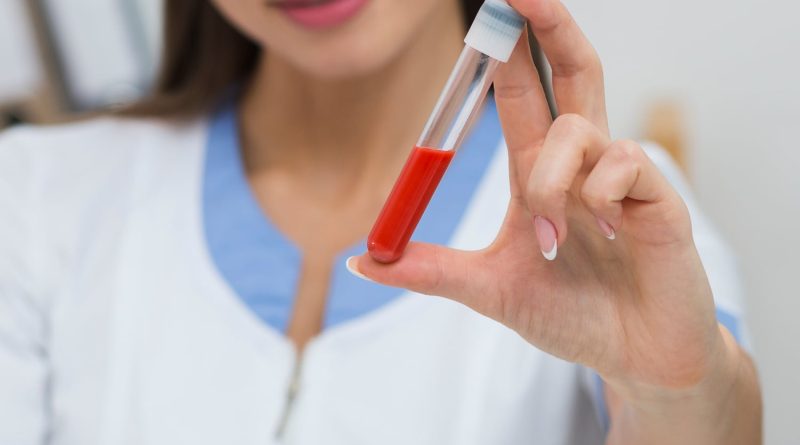Can a Blood Test Reveal That You Have Osteoporosis?
A blood test is one of the most reliable tools to diagnose internal health. It can give valuable insights into your metabolic processes and help detect a wide range of diseases. Now, what if it is said that a blood test can detect osteoporosis? Wait, we understand that you have doubts regarding this matter, and that’s very normal. But do not worry – we will answer all your queries in this blog. So, continue reading below!
Do blood tests really help with diagnosing osteoporosis?
Blood analyses give a general idea of your bone health, helping you know whether the risk of osteoporosis is high. Honestly speaking, they do not confirm osteoporosis. To better understand the topic, let’s first understand what osteoporosis is.
Osteoporosis is a disorder in which bones turn weak and become more prone to fractures. Due to the absence of early visible symptoms, it is often termed the ‘silent’ disease. Over time, the bones gradually lose their strength until one breaks badly.
Common procedures that doctors employ to diagnose osteoporosis
- A thorough review of one’s medical past and his family history.
- A physical assessment
- Bone density test, such as a dual-energy X-ray absorptiometry (DEXA) scan
- Urine analysis
- Blood test
- Using fracture Risk Assessment Tool to determine a person’s FRAX score
Combining the results of all the tests mentioned above, a doctor hypothesizes whether an individual is likely to develop osteoporosis shortly. Additional tests may also be involved to determine the actual cause behind such low bone density.
What can a blood test show for osteoporosis?
Blood tests play a major role in diagnosing osteoporosis. When the doctor prescribes a blood test, it is often targeted to know the underlying metabolic aspects of a person’s body.
A standard blood panel consists of the following parameters.
- Complete blood count (CBC)
- Liver function tests
- Micronutrient levels (such as calcium, magnesium, and phosphorus)
- Serum 25(OH)D level
- Thyroid-stimulating hormone (TSH) level
- Parathyroid hormone (PTH)
- Total testosterone and gonadotropin levels in younger males
If he suspects the presence of other conditions or issues, the following additional test may be ordered.
- Tissue transglutaminase antibodies
- Serum protein electrophoresis (SPEP)
- Serum immunofixation
- Serum free light chains
- Tryptase
- Iron and ferritin levels
- Bone-specific alkaline phosphatase
- Homocysteine
- Tryptase
After the results are delivered, the doctor will analyses them and inform the significance of each.
What to expect in a blood test?
The first step in a blood test is, of course, collection. A specialized clinician will use a sterilized needle to puncture your vein and draw a small amount of blood sample for analysis.
In this context, you must know that some private healthcare clinics, such as nursing homes, facilitate on-site blood sample collection. On the other hand, primary care physicians may require another person to assist them while visiting a clinical laboratory.
A blood test typically takes a few minutes to half an hour to complete. Here’s a detailed explanation of the steps constituting the whole process.
- Preparation of the site: The lab technician will first apply rubbing alcohol over the region where the needle is to be injected. This makes the site germ-free.
- Sampling: It involves injecting the sterilized needle to take a small amount of the analyte. You may experience a small, tingly pain when the needle is being pushed. After drawing the blood, the clinician will carefully transfer it to a sterile vial.
- Clinical analysis: After the blood sample is collected, it is sent to a lab, where the clinicians determine various metabolic components present.
- Final report: After the results are prepared, the lab sends them to the respective clinic or doctor. From there, the results are transferred to the patient via mail or a confidential portal.
(Note: Before the test, you must inform the doctor what medicines you are currently taking. Sometimes, they must be paused before the blood test. Also, specific tests require you to fast. Thus, you must prepare yourself accordingly.)
Who is a good candidate for an osteoporosis blood test?
Blood tests for osteoporosis are meant for those facing significant bone decay or pain. Here is a list of conditions that increase the risk of this disorder.
- Rheumatoid arthritis, inflammatory bowel disease, and similar autoimmune conditions
- Human Immunodeficiency Virus (or HIV) Infection
- Endocrinal disease
- Hormonal disorders
- Certain cancers
- Anorexia nervosa or bulimia nervosa
- Existing gastrointestinal conditions
It is best to consult a certified doctor who is knowledgeable about the risk factors for osteoporosis. This will aid in more effective diagnosis and treatment.
Conclusion
Several private clinics facilitate cost-effective blood tests, catering to a wide range of metabolic conditions. Well, if you suffer from any bone issue or continued pain over extended periods, do not sit back. Compare the locally available clinics and book a bone profile blood test as soon as possible!

